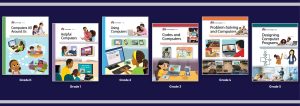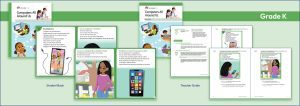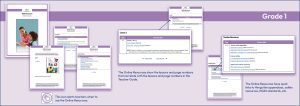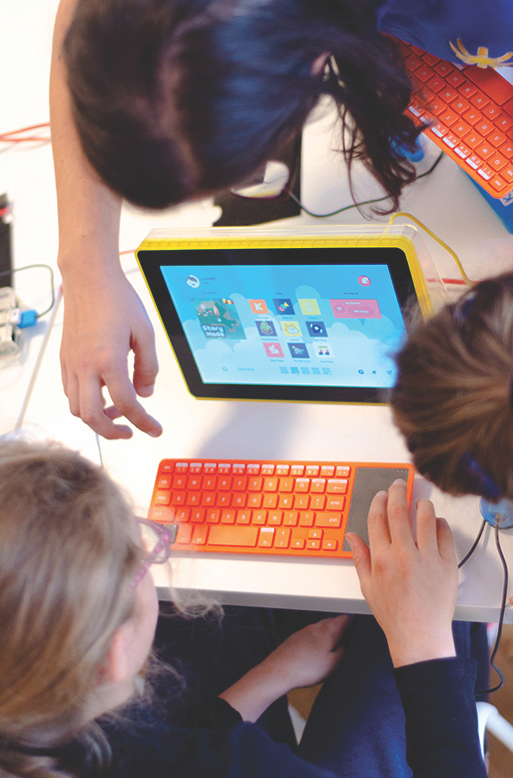Elementary school students are familiar with computers. Many classes have computers, and many schools have computer rooms. Students have desktops, laptops, and mobile devices, so it might be easy to assume that today’s children are computer literate. A closer look by computer science educators, however, reveals many areas of computer competency and internet use that are not covered by the hit-and-miss approach to understanding of computers in our world.
The lack of a systematic, progressive, and thorough curriculum that covers ALL aspect of computer science—what Core Knowledge Foundation perceives as computer literacy—has been filled by CKSci Computer Science. This is a K-5 program, with a unit in each grade level that, taken as a whole, is a complete presentation of the broad swath of computer science.
A given elementary student may know how to log on, cut and paste, or navigate a screen, but how many can be said to have a solid, curriculum-based, grade-level-appropriate, systematic understanding of the following:
- Computing Systems
- Networks and the Internet
- Data and Analysis
- Algorithms and Programming
- Impacts of Computing
- Culture
- Social Interactions
- Safety, Ethics, Law
These broad areas of computer literacy form the basis of the CKSci Computer Science program. They are informed by the standards put forth by the Computer Science Teachers Association (CTSA). In the CKSci Computer Science curriculum these areas are covered in a carefully crafted, spiral curriculum.
How familiar are you students with these CTSA sub concepts?
We are at the stage in modern science education where it is not enough for a school child to know how to log in and play a game. Responsible education and the demands of the modern world dictate that we should prepare students by presenting ALL aspects of our modern, computerized world.
- Hardware and software
- Cybersecurity
- Safety, Ethics, and Law
- Computer culture
- Computer program development
- Data collection, visualization, and transformation
How does Core Knowledge Foundation meet this responsibility?
We built a curriculum that addresses computer knowledge in a beautiful and kid-friendly suite of units.

Each K-5 grade has a Student Book/Reader, Teacher Guide, and Online Resources. All books are available for purchase or free download. With each unit a downloadable guide includes a Pacing Guide, Material Supply List, standards, and other helpful information.


For many elementary teachers, the suggestion that computer science should be a part of the curriculum may seem questionable. For many teachers, precious instructional time is devoted to teaching core content area fundamentals to students.
The study of computer science, however, is becoming more and more crucial in the lives of student and for society at large. Also, this curriculum is consistent with the Core Knowledge approach to learning. Knowledge builds upon knowledge, and computer science builds upon the foundational understanding that many devices share basic underlying technology. And that technology connects us all through shared processes and shared communication.
Core Knowledge Computer Science K-5 is avant-garde, breaking new ground in elementary education by offering a systematic, logical, spiraling curriculum in what will become an important, essential body of knowledge for young students.
